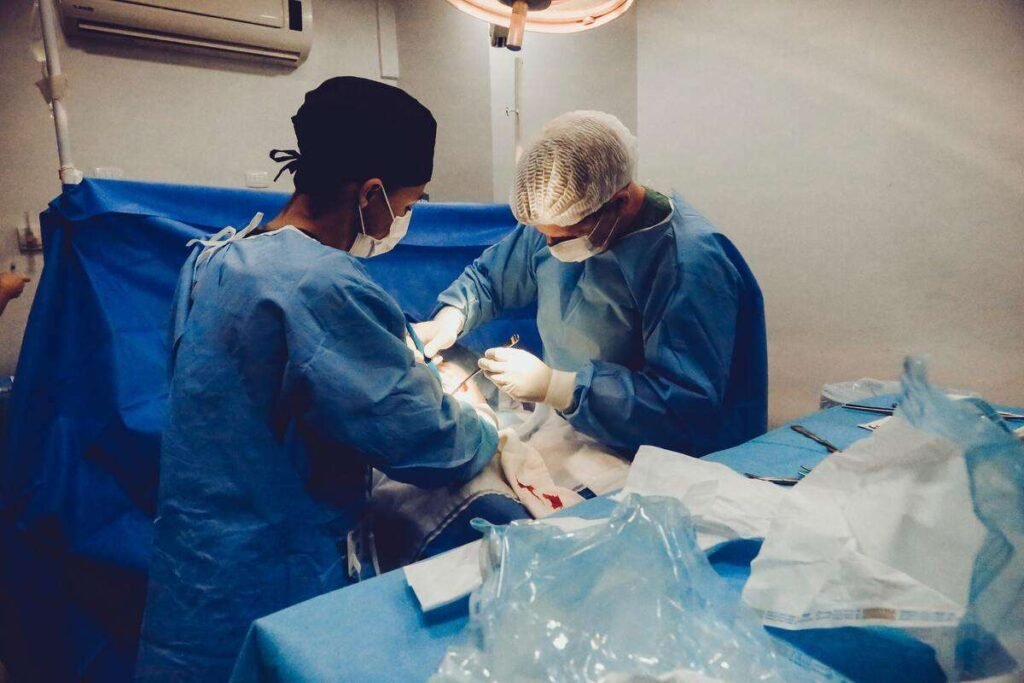
Can the Intestines Also Suffer a Stroke? 7 High-risk Groups for Small Intestinal Stroke
I believe everyone has heard of brain stroke or foot stroke, but have you heard of “intestinal stroke”? It seems incredible that intestinal stroke can occur, but don’t underestimate intestinal stroke. The fatality rate of intestinal stroke is quite high. If the golden treatment time is not grasped, the fatality rate is at least 90%, which is more terrible than ordinary cancer. What exactly is an intestinal stroke? What are the symptoms of intestinal stroke? How to treat intestinal stroke?
What is intestinal stroke?
Regarding gastrointestinal diseases, most people still think of colorectal cancer first. However, intestinal stroke is not less dangerous and is more difficult to treat than colorectal cancer. The medical name for intestinal stroke is Acute Mesenteric Ischemia. Like cerebral stroke, foot stroke, or myocardial infarction, they are all arterial and venous obstructions. About 70% of patients with intestinal stroke have arterial obstruction. Caused by obstruction.
However, there are different causes of intestinal stroke based on blocked arteries or veins:
- Arterial obstruction: Arterial obstruction is caused by high blood pressure, high blood lipids, and high blood sugar. In a modern society with a lack of exercise and an unbalanced diet, the number of intestinal strokes among Taiwanese people is increasing.
- Venous obstruction: It is more common in patients with abnormal coagulation function or deep vein thrombosis. Only a few are caused by malignant tumors. It is worth noting that intestinal stroke with venous obstruction occurs mainly in young people.
Intestinal stroke location: Small intestinal stroke is more common
“Intestinal stroke” basically refers to small intestine stroke. Although the large intestine is also likely to occur, it is relatively less likely than the small intestine. Since the arteries of the intestine are divided into two types: the “upper mesenteric artery” and the “lower mesenteric artery”, only the upper mesenteric artery supplies blood to the small intestine. The chance of obstruction of both arteries is low, so intestinal strokes are mostly small intestinal strokes.
7 high-risk groups for intestinal stroke: patients with cardiovascular disease should be careful
Intestinal stroke occurs quickly and quickly. If you have the following problems in your body, your chance of intestinal stroke may be greatly increased:
- Middle-aged people over 60 years old
- Atrial fibrillation
- Arrhythmia
- Hypertension
- Arteriosclerosis
- Coronary artery disease
- Diabetes
Intestinal Stroke Symptoms: Unknown Abdominal Pain to Pay Attention to
Most intestinal strokes are caused by artery obstruction. One of the most common symptoms is abdominal pain, which can be divided into the following two types depending on the state of abdominal pain:
- Severe abdominal pain: It should be noted that the abdominal pain caused by intestinal stroke is not just in one place, but the pain is in the entire abdomen. The patient can make a preliminary judgment based on this.
- Abdominal pain: It is a veno-occlusion type of intestinal stroke. Compared with severe abdominal pain, the pain of dull pain is difficult to distinguish.
In addition to the symptoms of abdominal pain, intestinal stroke can also cause complications such as bloody stools and diarrhea. In severe cases, it can cause intestinal necrosis, peritonitis or septic shock. Once symptoms of intestinal stroke appear, you should seize the golden treatment time and seek medical treatment within 12 hours, otherwise the mortality rate may increase significantly.
3 major ways to treat intestinal stroke
Before treating intestinal stroke, doctors will examine the large intestine through abdominal X-rays, computed tomography, and colonoscopy. If redness, swelling, ulcers, bleeding, and cyanosis are found in the large intestinal mucosa, the doctor will give the following treatments:
- Intravenous injection: resolves ischemia caused by dehydration.
- Anticoagulant drugs: Mainly used to treat venous obstruction type intestinal stroke. Taking anticoagulant drugs can dissolve blood clots.
- Surgery: Patients with severe intestinal stroke need surgery to remove the necrotic intestine. If the necrotic part is a branch of a blood vessel, the impact will be small; on the contrary, if the necrotic part is a main blood vessel, the mortality rate will be greatly increased.

Prevent intestinal stroke: control three highs and cardiovascular disease
In addition to relying on medical treatment, the most important thing is to control the three high blood pressure, eat less oil and less salt, regularly check for cardiovascular disease, and exercise more to maintain good health, so as to stay away from the crisis of intestinal stroke.












